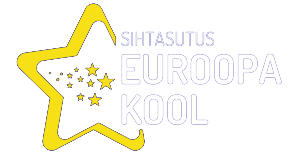Nursery
TES follows the Early Education Curriculum of the European Schools. Nursery is for 4 to 6-year-olds.
In Nursery, the main emphasis is on developing the abilities of a child through the use of imagination and instructed learning. The essential educational method is learning by playing. It is very important to retain the joy and enthusiasm for learning and face new learning challenges with courage and creativity. Please find more information about Early Education Curriculum.
PLEASE NOTE THAT IN 2025/2026 WE ONLY ACCEPT STUDENTS TO
NURSERY 1 (Pupils who are four years old or turn four before the end of December)
NURSERY 2 (Pupils who are five years old or turn five before the end of December)
—
Our Nursery consists of five English section classes:
The Curious Caterpillars
The Playful Pandas
The Dazzling Dolphins
The Friendly Foxes
And one French section class:
Les Chics Chouettes
(All activities are held in French, with French-speaking teachers, but the children also have shared activities with their friends from the English section classes.
Pupils in the Nursery section have some lessons with subject teachers:
- Motor Skills – 1 lesson per week (Learn more)
- Movement – 1 lesson per week (Learn more)
- Music – 2 lessons per week
Supply lists per class for the school year 2025-2026:
Every school day from 9:00 to 16:00.
Nursery Precare (free of charge) every school day from 8:00, in every Nursery classroom.
Aftercare and Extracurricular activities until 18:00.
| 08:00 – 09:00 | Precare |
| 09:00 – 09:30 | Breakfast |
| 09:30 – 11:00 | Morning Circle & Classrooms Activities |
| 11:00 – 12:00 | Outside Play |
| 12:00 – 12:30 | Classroom Activities |
| 12:30 – 13:00 | Lunch Break |
| 13:00 – 14:15 | Rest Time / Quiet Time (the duration and organization of this period depends on the age and needs of the pupils) |
| 14:15 – 15:15 | Guided activities / Free Play |
| 15:15 – 15:45 | Afternoon Snack |
| 15:45 – 16:00 | Clean up / Getting ready for home or aftercare |
Please note: the daily schedule might vary slightly due to the lessons with subject teachers and therefore you will receive the exact programme of each day from your class teacher
“All children need to feel part of a community – no matter what part of the world they live in. This is the underlying philosophy behind Free of Bullying and its internationalization.”
Free of Bullying is a pedagogical anti-bullying program meant for preschool and lower Primary pupils. Tallinn European School has been certified by the Estonian Union of Child Welfare since spring 2015. More information about the program can be found here.
We offer aftercare service for the younger pupils. Nursery children have the possibility to stay in the aftercare class from 16:00 to 18:00. During the afternoons, pupils can also participate in extracurricular activities.
Click here for more information about the aftercare.
Click here for more information about the extracurricular activities.
Dear parents, please make sure to fill in this Information Card about your child (one card per child) and make sure he/she always has it with him/her when at TES.
Curious Caterpillars
- Teacher: Annika Maria Moon annika.moon@est.edu.ee
- Assistant: Karin Tüüri karin.tuuri@est.edu.ee
- Assistant: Randel Aoveer – randel.aoveer@est.edu.ee
Playful Pandas
- Teacher: Liisi Matt liisi.matt@est.edu.ee
- Assistant: Aida Alumno aida.alumno@est.edu.ee
- Assistant: Nishadi Ramishka – nishadi.ramishka@est.edu.ee
Dazzling Dolphins
- Nursery Teacher: Agata Bladosz – agata.bladosz@est.edu.ee
- Assistant: Margit Potsepp – margit.potsepp@est.edu.ee
- Assistant: Jessica Pinho – jessica.pinho@est.edu.ee
Friendly Foxes
- Nursery Teacher: Maud Bertevas – maud.bertevas@est.edu.ee
- Assistant: Erika Karell – erika.karell@est.edu.ee
- Assistant: Jeanna Ilves – jeanna.ilves@est.edu.ee
Les Chics Chouettes
- Nursery Teacher: Elea Coutot-Vuillemot – elea.coutot@est.edu.ee
- Assistant: Margaret Loik – margaret.loik@est.edu.ee
- Assistant: Harley Evander – harley.evandar@est.edu.ee
Nursery Coordinator Sandra Ermo – sandra.ermo@est.edu.ee
French Section Coordinator Veronique Tribut-Ohler – veronique.tribut@est.edu.ee







